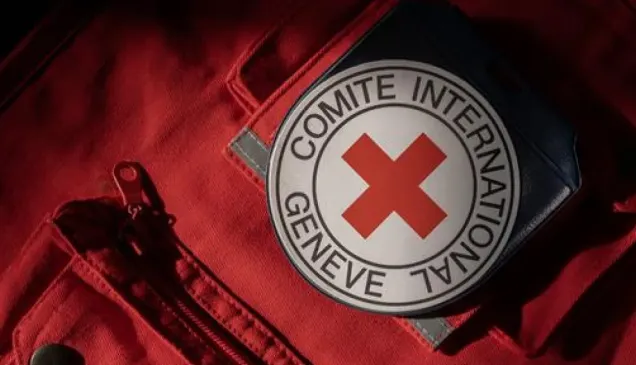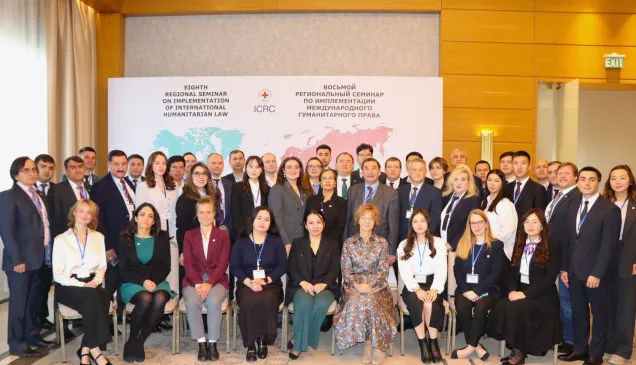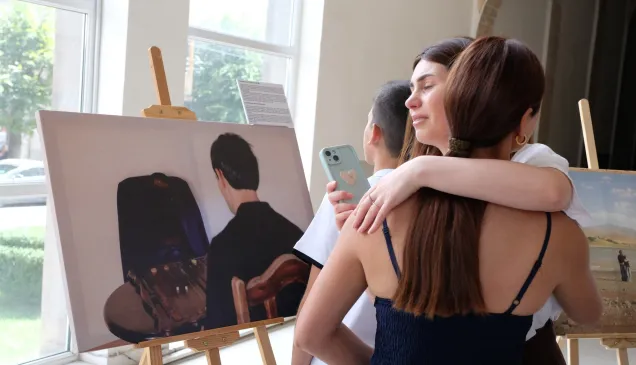How the ICRC helps sustain life in Armenia’s borderlands: A day with Harutyun Harutyunyan
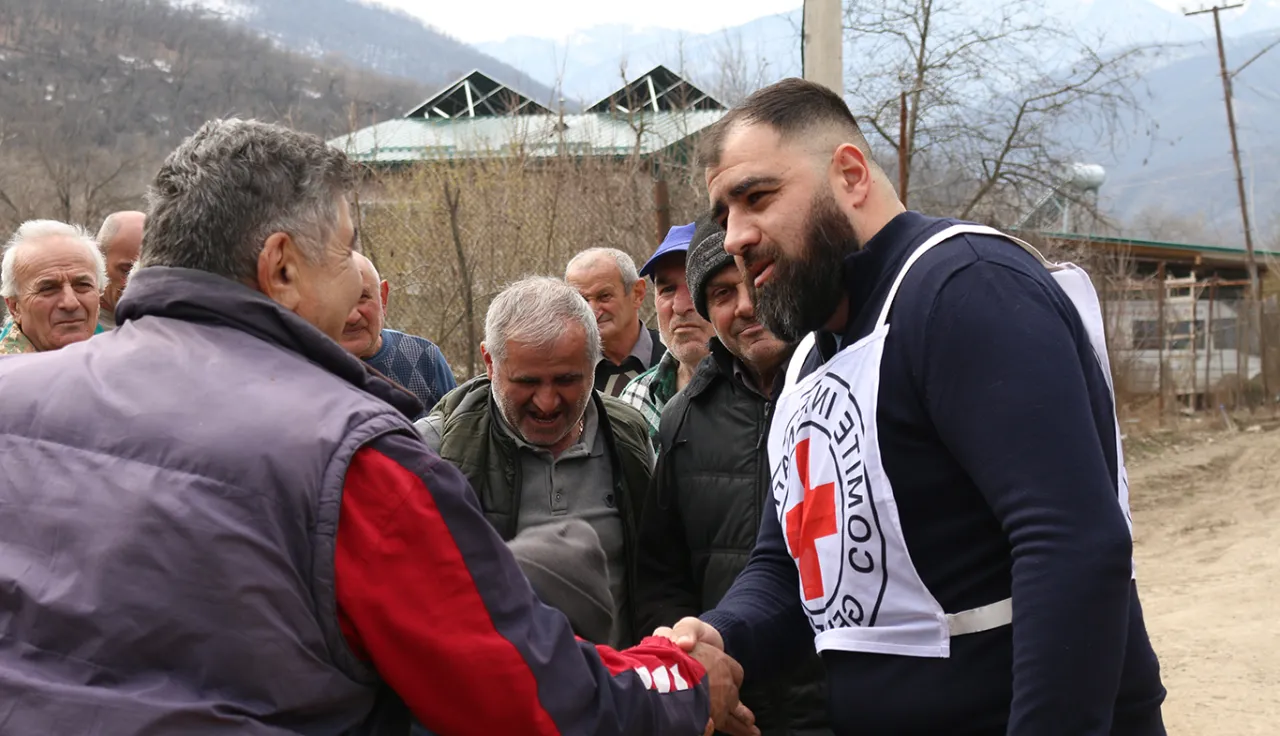
“Going beyond only providing short-term aid, our aim has been to help people shape their future,” says Harutyun Harutyunyan, a staff member of the ICRC’s economic security unit.
Goris is more than just a town in southern Armenia. Nestled amid the Syunik Mountains, its winding streets and stone houses tell the stories of generations. Located near the Lachin Corridor, once a crucial link between Armenia and Karabakh, Goris has witnessed profound change. In September 2023, as tensions escalated, more than 100,000 people fled Karabakh, seeking refuge in this town, hearts heavy with uncertainty and arms carrying all they could manage to salvage. Today, beyond its charm and historical significance, Goris has become a place where stories of resilience are nurtured daily through projects run by the International Committee of the Red Cross (ICRC) to empower communities and help them rebuild their lives and thrive.
At the heart of these efforts is Harutyun Harutyunyan, a staff member of the ICRC’s economic security unit, who has been working to create opportunities that build the future. Harutyun’s days are spent travelling to remote villages, assessing projects and speaking with the people affected by violence.
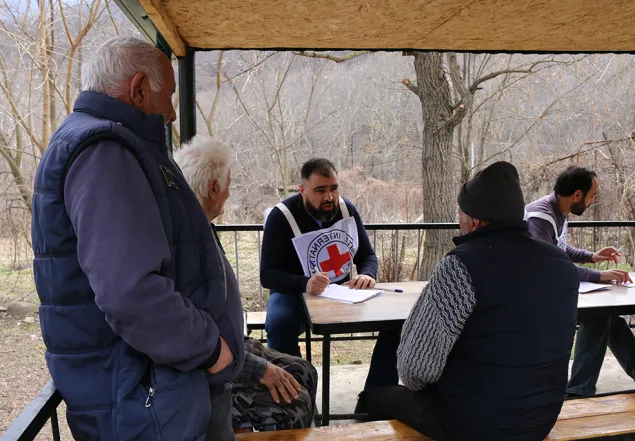
Meeting villagers in Nerkin Hand to discuss their needs.
Harutyun begins his day at the ICRC’s subdelegation in Goris with checking emails and preparing for a field trip. On his desk is a schedule of planned visits to the border communities of Shurnukh, Nerkin Hand, Aravus, Khoznavar and Vaghatur. Harutyun is ready for a demanding day ahead, carrying documents, a notebook and a water bottle in his backpack.
As part of the EcoSec team, Harutyun focuses on long-term support for people affected by conflict: distributing seed, providing equipment to help small businesses or restoring land through melioration or irrigation. “Going beyond only providing short-term aid, our aim has been to help people shape their future,” he says. Harutyun’s role demands organizational skills and, importantly, empathy, patience and the ability to find solutions tailored to each unique situation.
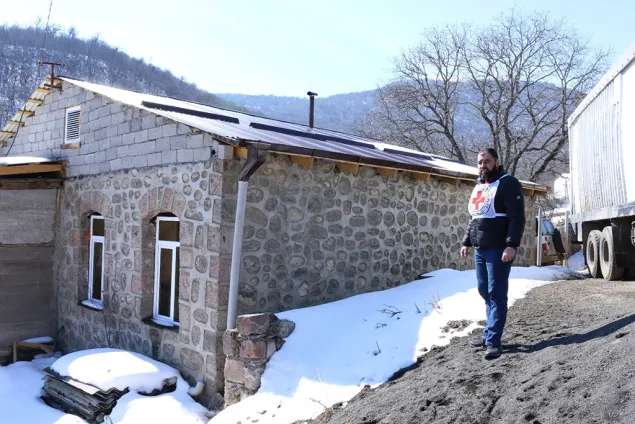
Inspecting a repaired roof in Shurnukh, which was part of the ICRC’s efforts to improve living conditions.
By 10am, Harutyun is in Shurnukh, a small village affected by the escalation of conflict in the autumn of 2020. He oversees the distribution of hygiene kits to 47 families (124 people). While, the boxes of soap, shampoo and other essential items seem modest, the locals value it. Inside the village community centre, Harutyun sits with families, helping them fill out forms for further assistance while discussing their needs. An elderly woman with tired eyes quietly thanks him as she receives her kit. Harutyun notes that in these remote areas, where other organizations rarely reach, even this gesture is a lifeline, offering not just material help but emotional reassurance.
While in Shurnukh, Harutyun stops by to inspect a house that the ICRC had helped to repair as its roof was damaged and leaking. “Projects like this, which also extend to other regions, support vulnerable families by providing them with safer, more stable living spaces as they face continued challenges,” he explains.
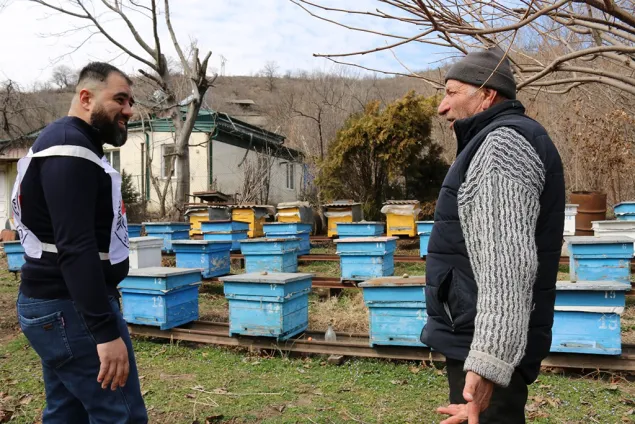
Meeting a local beekeeper at his apiary.
By midday, Harutyun reaches Nerkin Hand, a remote village in Kapan municipality that was severely affected by the 2020 and 2022 conflict escalations, crippling the local economy and living conditions. In 2024, the ICRC launched an initiative to help villagers restore livelihoods and recover from the financial impact of the conflict. We provided 25 families with grants to buy agricultural equipment, livestock or other income-generating resources. Additionally, five families, mostly single women and elderly people, were provided with unconditional financial aid as they couldn’t participate in the programme independently.
Villagers welcome Harutyun and proudly share how their living conditions have improved. Of the 25 villagers who were part of the project, 22 have successfully implemented their plans, developing their farms and securing a sustainable income. “While three families faced challenges, the overall results have been encouraging,” says Harutyun. He hands out certificates, officially transferring ownership of the acquired assets to the families and encouraging them to move forward independently.
One of the villagers, a beekeeper, used his grant to buy ten new hives and equipment. He takes Harutyun to his apiary, abuzz with the sound of active bees. After a successful winter, the beekeeper has expanded to 30 hives and now sells honey in Kapan city.
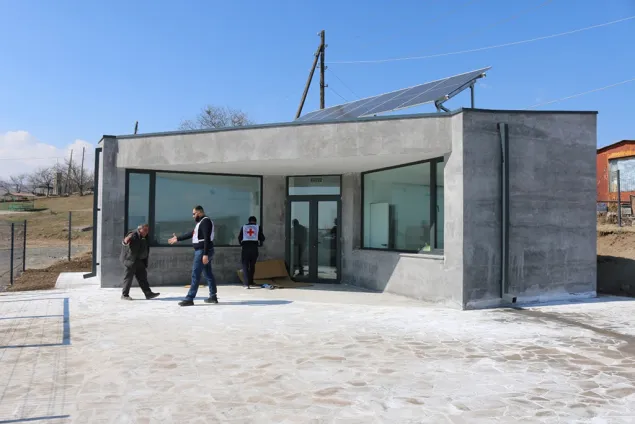
Inspecting the new medico-obstetric centre built by the ICRC in Aravus village.
The next stop is Aravus village, where the ICRC built a medico-obstetric centre because villagers struggled to access basic health care. Harut greets locals who eagerly await the opening of the centre, which is equipped with solar panels and comfortable rooms.
In the small village of Khoznavar in Tegh municipality, Harutyun checks a feed crusher delivered to a local cooperative in 2024. The machine has significantly improved the lives of 30 families, allowing them to produce their own livestock feed and reduce both costs and effort.
By afternoon, Harutyun arrives in Vaghatur, where the ICRC has been supporting the irrigation of 60 hectares of land since 2021. Once abandoned, this land now supports 43 families. Harutyun says the land has become the foundation of a stable future for the people.
Harutyun’s last stop for the day is Gndevaz, a village near Jermuk, a place that left a deep impression on him as he helped a family whose son went missing in 2020. With the father unemployed and the family facing mounting debt, the ICRC stepped in and provided them with a chicken coop, equipment and feed to farm eggs. As Harutyun inspects the coop, watching the chickens scurry around inside, the mother shares her plans for the future and says the timely support is also helping to ease their emotional burden a little.
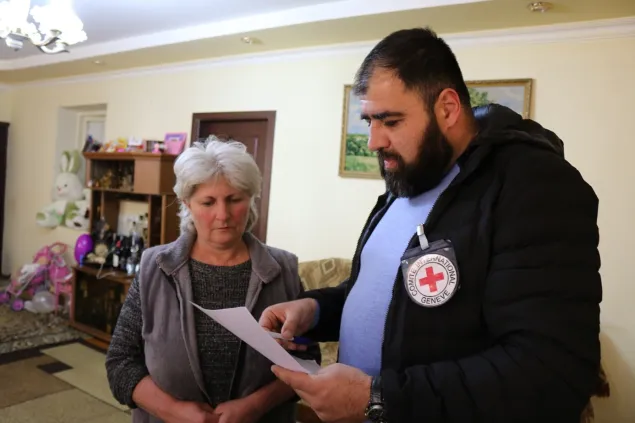
Harutyun hands over documents to the beneficiary, marking the successful completion of the ICRC’s support.
Inside the family’s home, with children’s toys scattered around and old photos on the walls, Harutyun listens as the mother recalls memories of her missing son. For Harutyun, these personal conversations are just as essential as the aid itself.
By evening, Harutyun is back in Goris to wrap the day with reports. Before signing off, he shares a clear message: “The ICRC will always help people affected by conflict.”

